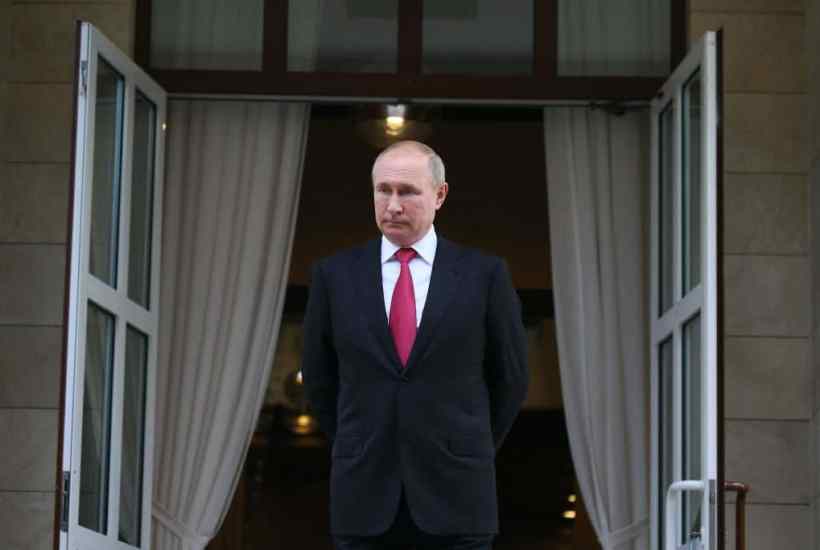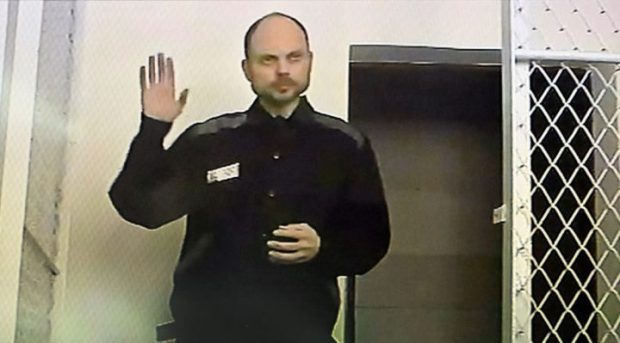Is Putin preparing to invade Ukraine? It certainly looks that way, with western intelligence agencies estimating this week that around 100,000 troops are now massing at the country’s eastern border.
To some, this build-up is proof enough that the Kremlin plans to invade. This week the US president Joe Biden even made significant diplomatic concessions to Moscow to prevent a looming conflict.
But the US president should keep in mind that capability does not prove intent: and Putin may well decide that the cost of invasion is too hard to justify. His recent Ukrainian mobilisation could still be a piece of ‘heavy-metal diplomacy’ – a show of force intended to bully and bluff Kyiv and the West into concessions.
Vladimir Putin may have some odd views about Ukraine and its history, but he is a pragmatist. He is determined to assert Russia’s standing as a great power, and his concerns that Ukraine could become a Nato forward base seem entirely genuine. Nonetheless, for all his sabre-rattling, he is risk-averse. He may get strategic calculations wrong – the intervention in the Donbas, unlike the annexation of Crimea, is quietly accepted as a mistake by many in Moscow – but he is no mindless zealot. He will not act without weighing up likely costs against potential advantages.
Russia’s military planners will no doubt be working late trying to assess the likely conduct of escalation. It’s likely their findings will not be especially encouraging.
The maps doing the rounds in the Western media about potential invasion plans are speculative imaginings given credibility by their dramatic red arrows and annotations about naval landings here, mass parachute drops there. Much of this speculation is frankly implausible, and more about spin than strategy.
If Moscow unleashes its forces in more than a very specific and small-scale way, this would be modern blitzkrieg on a massive scale. Under Putin, Russia’s military, which was on the verge of collapse in the 1990s, has been dramatically reformed and rearmed. While the most modern western equipment may be more advanced, we struggle to buy anything like enough of it. Russia has not just been buying more equipment, it has ramped up its training and exercise schedule and tested its tactics in the field in Chechnya, Ukraine and Syria.
In fairness, Ukraine has also rebuilt its military since it too virtually fell apart in 2014. This is arguably one of its greatest successes. It has a quarter of a million men and women under arms, and hard-won combat experience from the Donbas front line.
Nonetheless, it is clearly outmatched, and in the first stage Russia would rule the battlefield. However, unless Kyiv were willing to quickly sue for peace – which seems unlikely – then this would not be the end but the start of the war.
Any terrain taken, and especially cities in eastern Ukraine such as Kharkiv, Dnipro and Poltava, would need to be pacified. This would not be like when Russia dominated Donbas, where a vigorous minority was willing to fight for autonomy and a likely majority were at least willing to accept it. This would be a nasty, scrappy and drawn-out insurgency, against a population who consider the Russians invaders. Ukrainians are both willing to fight and, often, armed and trained for that very purpose.
To hold this territory Moscow would need to maintain a massive commitment of troops and national guard forces in occupied Ukraine. There would be a steady flow of dead and wounded home, at a time when the Russian population is already feeling disenchanted. (According to the latest polls, only 32 per cent would vote for Putin.) There will be the pain of international sanctions. And for what?
Back in 1979, when the Soviet leadership made its fateful and foolish decision to invade Afghanistan, the General Staff were fully aware that taking Afghanistan’s cities might be easy, but subduing its population was almost impossible. However, Defence Minister Dmitry Ustinov, a crony of leader Leonid Brezhnev’s, refused to pass on the bad news, airily assuring his boss that it would all be over in six months.
The Russian Defence Minister Sergey Shoygu is a close Putin ally, but not a crony. By all accounts, he was lukewarm about Russia’s seizure of Crimea in 2014. The military seem to trust that he will – however carefully – convey realistic assessments to the boss. Even if Putin currently plans war, he may yet change his mind, especially if the people around him are willing to be candid about the costs.
Got something to add? Join the discussion and comment below.
Get 10 issues for just $10
Subscribe to The Spectator Australia today for the next 10 magazine issues, plus full online access, for just $10.



















Comments
Don't miss out
Join the conversation with other Spectator Australia readers. Subscribe to leave a comment.
SUBSCRIBEAlready a subscriber? Log in